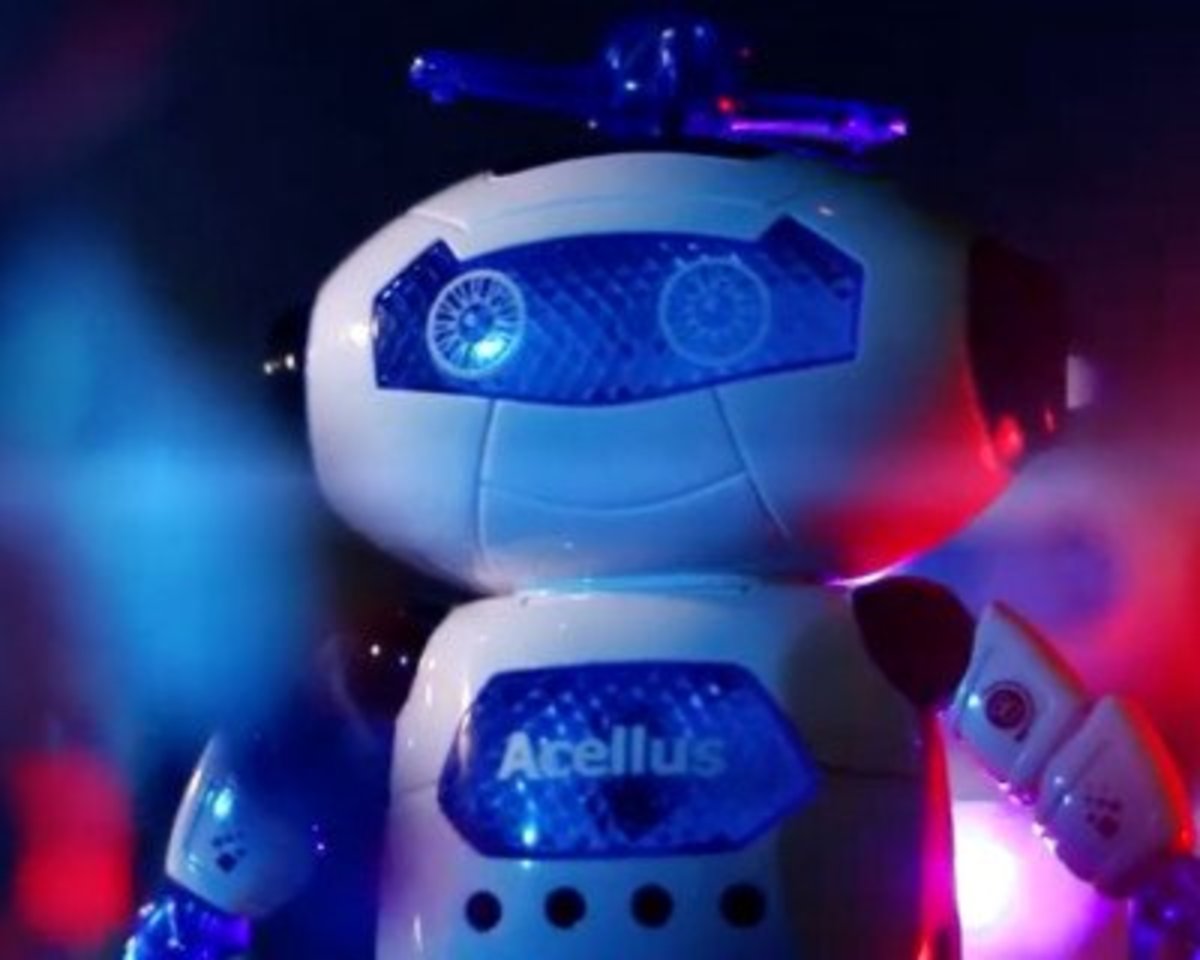Whose Responsibility Is My Child's Music Lesson Practice?
Help for Parents to Help Their Children
The Parent's Complaint
How often do we music teachers get asked this question or some variant of it: Whose responsibility is my child's music lesson practice? Typically the parent is fed up with having to “make” the child practice. After all, they reason, the music lessons are the child’s activity; if their son or daughter wants to continue lessons, shouldn’t the child be able to do the practice without the parent’s push?
Perhaps the parent feels as frustrated about the child’s seeming lack of motivation as I feel about these parental complaints when I hear them in person or read them in Dear Abby, Dear Margo, Dear Prudence or wherever. The question always seems to be leading up to the parent’s justification for stopping the lessons altogether.

Don't Miss This Book!
A Better Perspective
Some parents may not have given any rational thought to what is involved with music lessons in the first place. In the excellent book Raising Musical Kids: A Guide for Parents, author Robert A. Cutietta contrasts what is involved in music lessons with participation in a sports activity of any kind. In the sports activity, the child has to attend practice with the team several times each week. In those practices, the coach is available in person to comment on and help modify each action the team members take. If the bat is held wrong or if the ball is kicked weakly, the coach is present to help point that out and give suggestions for improvement. Several times each week!
With music lessons, on the other hand, the lesson ordinarily occurs only once or twice per week and students are on their own for practice time. At the same time, it is the practice time when the bulk of learning will actually take place. In one sense, it is helpful to view lesson time as being a time of focus to help the student learn how to practice. That is, the teacher will probably explain and demonstrate new information and skills that the student is expected to learn and practice during the coming week(s); and the student will perform the music that was practiced in the previous week and will hear the teacher’s comments on what was done accurately and well and comments on what needs to be improved and how to accomplish that. Teachers may teach what constitutes a good practice routine, and some lessons may even take the form of a demonstration of a practice session.
Many people today are updating the old, poorly-stated adage “Practice makes perfect” to the more insightful “Perfect practice make perfect.” Any practitioner (of any art or skill) will develop in the same direction as their practice. If the practice is weak, flimsy, and full of mistakes, that is what the student will learn and incorporate – weakness, flimsiness, inaccuracy. GIGO: Garbage In, Garbage Out.
Therefore, if the student is not practicing well on their own – or not practicing at all – then what is actually being learned? Very little, unfortunately. Or – even worse – the student may be developing some very bad habits that will be hard, perhaps even impossible to unlearn.
Learn How to Practice
One Teacher's Perspective
So, back to the Parent’s Complaint. Why shouldn’t the child have full responsibility for practice time? Cutietta shares in more detail than I can here, but there are five general reasons why I believe it makes sense for the parent to remind (and, yes, even push) the child to practice.
1) Even the most highly motivated of musicians, including those who eventually became professionals with lifelong careers, may have been through periods when they needed their parent’s reminder or push to practice. If these highly-talented, highly-motivated individuals needed that kind of help, then why shouldn’t others? If the parent doesn’t help the child succeed in their practice, then how will either one ever know whether they have what it takes to become professional?
2) The parent would most likely help the child participate in sports practices, wouldn’t they? Most parents will not say, “Okay then, if playing soccer is your activity, then you need to find your own transportation to practice.” Or “You need to take the initiative to remind me to take you to baseball practice.” Admittedly, some parents (not the most dedicated ones) might state a mild version of these ideas. But the point is that when there is an obvious, physical difficulty affecting participation, the parent is likely to assist the child. If the difficulty is in motivation, development of routine, or self-discipline, the parent thinks it is up to the child to overcome the hurdle. Where’s the logic?
3) Over the long term, music lessons probably cost more to the parent than many other activities might; they are more of a financial investment. Why wouldn’t a parent do everything reasonable to help bring the greatest possible return on their investment? If music lessons for a year cost anywhere from about $400 to $3000, versus about $40-$100 for participation in a sports team for one season, why wouldn’t the parent want to help the child get the most they can out of lessons?
4) In my own experience the students whose parents remind, urge, push, or nudge them to practice are noticeably better students than the ones who are left on their own to practice. This may derive from the child’s awareness of their parent’s interest in the activity, awareness of the importance the parent places on it, or the actual amount of time spent in practice – or some combination of factors. But since I have seen this in my own students, I am inclined to believe others who say that a parent’s participation is a big key in a child’s success in music lessons.
5) There are numerous important activities and routines that require long-term reminders before becoming fully ingrained habits. For some of us, the reminder to brush our teeth or to put away things we have left out takes longer to gel than it does in others. Would a good parent say, “Taking a bath is your responsibility, therefore I will leave you on your own to develop the routine?” Some might – but those children will have a difficult time in that specific area for their entire lives. Neuroscience has helped us to understand that some people develop habits more easily than others. This is true in many areas of life such as household routines, homework skills, and self-care; it can apply to the routine of practicing for music lessons, as well.
More About Learning How to Practice
The Devil's Advocate - But Not Really
Although I am a firm advocate of the Parent-As-Reminder-and-Nudger model, I want to share two opposing views and my own experience which might sound like contradictions of this model.
First, I believe it is a mistake for a parent to become overly involved in steering what the student is practicing or how (unless the lessons are geared to this approach, as in the Suzuki methods). If the child feels hounded by the parent both to practice and to correct mistakes that the parent believes they hear, then the child may come to resent everything about the music lesson experience. Cutietta shares some great tips on helping a child to get the most out of music lessons and to have the most effective practice time possible, including some tips on ways the parent can help to gently guide the practice time, without being inappropriately involved.
The parent does not necessarily know exactly what it is the teacher has asked the child to do or to focus on. The parent may believe they are assisting, when they actually may be contradicting a specific area of focus or confusing the child. Some of my students’ parents will ask me about things they are hearing in the child’s practice time, and I share with them my expectations and reasons why I believe the parent either should speak up or keep quiet when they hear certain things from their child at home. That is helpful. Speaking up without consulting with the teacher probably is not.
A good way for a musically knowledgeable parent to phrase an objection (to “mistakes” heard during the child’s practice) might be in the form of a question: “I don’t believe I have heard that piece played like that before. Is that what your teacher suggested? Did s/he explain why the rhythm should be played that way? Would it be a good idea to ask about it at your next lesson?”
Second, if the student never practices or plays the instrument for fun without reminders (as opposed to needing occasional or even frequent reminders), that may be an indication that they don’t really want to be taking lessons at all, not simply that they have an immature degree of self-motivation relative to practicing.
One of my own children took violin lessons for a while. After several months, it became apparent that this instrument was not “his thing.” He was young enough that it was difficult to pin down exactly what it was that he disliked, but it was quite clear that he was rebelling strongly against the entire experience, not simply the practice routine. I reluctantly made the decision to allow him to stop his lessons and only later, in retrospect, remembered that I had had the same experience when I was a child. My son continued with singing experiences – children’s choirs, show choirs, school musicals – and later picked up guitar with a vengeance, but he never touched the violin again.
An important aspect of childhood is the opportunity to try out many different pursuits to see what clicks and what doesn’t, what one wants to learn and what would be a further waste of time and money. When anyone takes music lessons there may come a time when they feel they have given it enough of a try, and they are ready to move on. That decision is best made with the help of the music teacher, because the teacher may recognize that the student is experiencing a plateau or a lull that is normal for many students; the teacher should be able to provide a variation of repertoire or routine or focus on skills that will help the student to work through the doldrums and into a more enjoyable experience.
But even with this assistance, a time may come when the student is genuinely ready to quit, just as my son and I were with our violin lessons. When that point is reached, the decision should be made on the basis of many factors – but not solely on the question of whether the child is making himself or herself do the necessary practice at home.









![#1 in a Million Concert by Larry Graham [Interviews] #1 in a Million Concert by Larry Graham [Interviews]](https://images.saymedia-content.com/.image/t_share/MTc2MjQ3NDE1NzQ0MTEyNTE5/larry-graham-performs-a-one-in-a-million-concert.jpg)
